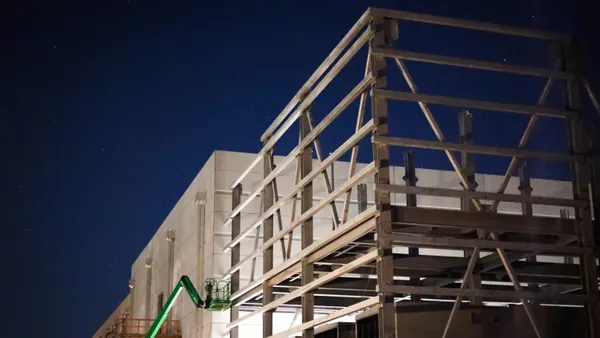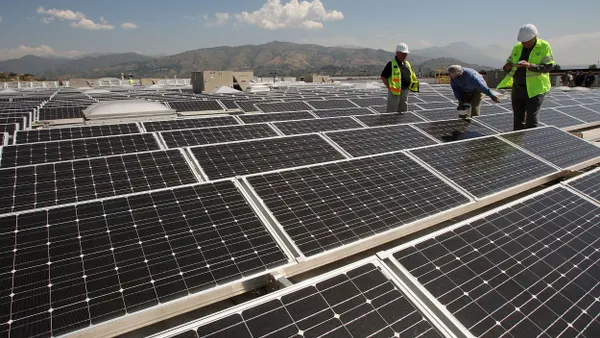Dive Brief:
- LUMA Energy has been operating Puerto Rico's electric grid for four months now, and the transition to a new grid operator has been marred by persistent outages at aging power plants and a substation fire that knocked 800,000 customers offline for a day. The island's electric system "is arguably the worst in the U.S.," LUMA President and CEO Wayne Stensby told lawmakers at a House committee hearing on Wednesday.
- The utility, along with the Puerto Rico Electric Power Authority (PREPA) and other grid stakeholders, faced questions about its generation, transmission system and the planned shift to 100% renewable energy by 2050. LUMA currently delivers about 2% renewables, and lawmakers expressed doubt the island would meet its decarbonization goals.
- "Over the summer, Puerto Rico has faced extreme instability of power supply, with widespread and prolonged power interruptions due to a near collapse of the generation fleet in the hands of PREPA," said Rep. Jenniffer González-Colón, the nonvoting representative of Puerto Rico. "How long is this going to happen? LUMA and PREPA must answer that question."
Dive Insight:
Puerto Rico's electric grid is unstable "and has been for some time," Stensby said. The utility is preparing to roll out grid upgrades and add renewable power, but lawmakers at Wednesday's hearing say the process is moving too slowly.
"Foot dragging" in the implementation of Puerto Rico's clean energy law and a lengthy integrated resource planning process "make it unlikely that these renewable energy goals will be met," Rep. Raúl Grijalva, D-Ariz., chair of the House Committee on Natural Resources, said at the hearing.
González-Colón questioned why the utility has not already accessed Federal Emergency Management Agency funds, after the agency authorized $9.6 billion for the island's recovery a year ago following Hurricane Maria.
Stensby told lawmakers that LUMA, which took over running the transmission and distribution system from PREPA this summer, has been "heavily focused on accelerating the major capital projects to be executed under the various federal grant programs."
LUMA is owned by ATCO and Quanta Services, and manages the Puerto Rico grid through a public-private partnership. PREPA continues to own the island's grid assets.
Stensby said there are about 65 grid modernization projects representing nearly $2.8 billion of work that have received initial green lights from regulators and are in "various stages of engineering and environmental assessments today." Another $3.7 billion in projects has been vetted by the Puerto Rico Energy Board, and initial statements of work have been submitted to FEMA.
The projects include a mix of transmission and distribution system and substation upgrades.
PREPA officials also say that over the next three years they will seek commitments from third party developers for 3,750 MW of renewable energy generation and 1,500 MW of energy storage resources. The utility issued a request for proposals in February for the first of six tranches of clean energy resources. The first includes at least 1,000 MW of renewables and 500 MW of storage, and a second is expected around the middle of this month.
PREPA is also "making progress in securing federal funding to support the renewal of generation and hydro assets, though the process continues to be complex and time-consuming," Fernando Gil Enseñat, chairman of PREPA's governing board, said in prepared testimony.
LUMA's arrangement with Puerto Rico has been unpopular with residents and marred by labor disputes. Detractors blame the current spate of outages on "Hurricane LUMA" — referring to the company's grid management difficulties — and asked the House committee to investigate the utility's arrangement with the island.
The investigation should look in particular at "the lack of trained personnel to properly operate the electric system," Agustín Irizarry-Rivera, a professor of electrical engineering at the University of Puerto Rico at Mayaguez, told the committee. During the transition, LUMA struggled to hire line workers from PREPA's ranks.
And, Irizarry-Rivera said, the inquiry should examine the status of FEMA funds "to ensure that the funds are used in a cost effective manner, to provide affordable, distributed, renewable and resilient electric energy to Puerto Rico."














